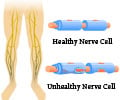Review the side-effects of Inotersen as documented in medical literature. The term "side effects" refers to unintended effects that can occur as a result of taking the medication. In majority of the instances these side-effects are mild and easily tolerable, however sometimes they can be more severe and can be detrimental.
If the side effects are not tolerable adjusting the dosage or switching to a different medication can help to manage or overcome side effects. If you have any doubts or questions, we recommend seeking advice from your doctor or pharmacist.
Gastrointestinal: Nausea, vomiting, reduced appetite, dry mouth
Nervous system: Headache, fever, abnormal weakness
Cardiovascular: Abnormal heart rhythm, swelling of the hands and foot or ankles, reduction in blood pressure while standing suddenly from a sitting or lying position
Respiratory: Breathing difficulty, flu-like symptoms
Skin: Injection site reactions such as rashes, redness, pain, and swelling
Lab abnormalities: Abnormal levels of hemoglobin, platelets, liver enzymes, bilirubin, creatinine, and glomerular filtration rate
Others: Muscle pain, contusion or bruising, bacterial infections
Do not drop in hot water or place in a microwave oven with the intention of warming the prefilled syringe.
Patients must be encouraged to actively get involved in the REMS (Risk Evaluation and Mitigation Strategy) program and should inform the doctor if any side effects occur.
Participating in all monitoring programs to detect the risk of bleeding disorders or kidney damage is also advised.
If the side effects are not tolerable adjusting the dosage or switching to a different medication can help to manage or overcome side effects. If you have any doubts or questions, we recommend seeking advice from your doctor or pharmacist.
Gastrointestinal: Nausea, vomiting, reduced appetite, dry mouth
Nervous system: Headache, fever, abnormal weakness
Cardiovascular: Abnormal heart rhythm, swelling of the hands and foot or ankles, reduction in blood pressure while standing suddenly from a sitting or lying position
Respiratory: Breathing difficulty, flu-like symptoms
Skin: Injection site reactions such as rashes, redness, pain, and swelling
Lab abnormalities: Abnormal levels of hemoglobin, platelets, liver enzymes, bilirubin, creatinine, and glomerular filtration rate
Others: Muscle pain, contusion or bruising, bacterial infections
Other Precautions :
Inotersen prefilled syringes should be removed from the refrigerator and kept outside to come to room temperature for a minimum of 30 minutes before injecting.Do not drop in hot water or place in a microwave oven with the intention of warming the prefilled syringe.
Patients must be encouraged to actively get involved in the REMS (Risk Evaluation and Mitigation Strategy) program and should inform the doctor if any side effects occur.
Participating in all monitoring programs to detect the risk of bleeding disorders or kidney damage is also advised.







